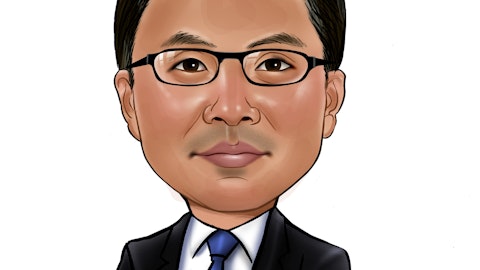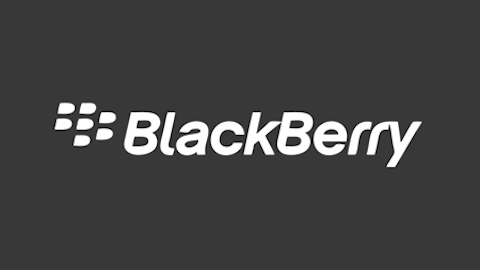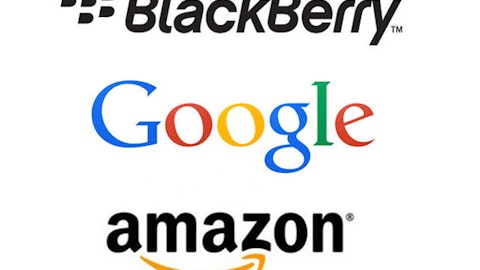Is BlackBerry Ltd (NASDAQ:BBRY) coming back as one of the leaders in the smartphone market? The short answer is no; or at least, not yet. The company’s latest financial results for the third quarter of fiscal 2015 showed a decrease in revenues to $793 million, from $1.19 billion a year ago, but its GAAP net loss narrowed significantly to $0.28 from $8.37. However, the decrease in revenue was mainly impacted by a drop in handsets delivered last year. The company sold around 5.9 million phones in 2014, which represents a decline of around 70%. Therefore, BlackBerry is still losing ground in terms of market share. According to IDC data, BlackBerry OS’s market share was at just 0.5% in the third quarter of 2014, a significant drop from 9.6% in 2011.

However, there are some positive signs that could bring BlackBerry back on track. The company has released two new smartphones in the second half of 2014, the Passport and Classic. However, both models have been released in limited editions and without any tie-ups with carriers in the US. In this way, both new models, which represent attempts by BlackBerry to revitalize smartphones with physical keyboards, still require some time to have an effect on BlackBerry’s sales figures. Moreover, it also looks like hardware is not the primary focus of the company anymore as CEO John Chen is engaging more in the development and sale of security software to governments and other companies.
On the other hand, investors seem pretty confident about BlackBerry Ltd (NASDAQ:BBRY)’s outlook. We don’t know if they are betting on the company’s smartphone sales to rebound or are expecting the company to sell or discard the smartphone segment and focus entirely on software, but we can see that the company’s stock gained almost 50% in 2014. Moreover, as we looked at the numbers from the latest round of 13F filings, we can see that BlackBerry was one of the companies with the highest inflow of capital from investors. Among 730 funds that we track, 25 reported long positions in the company, with a total value of $756.82 million. The number went up from 17 funds holding $631.18 million worth of the company’s stock at the end of the third quarter of 2014.
The largest shareholder of BlackBerry Ltd (NASDAQ:BBRY) remains Canadian billionaire Prem Watsa, Chairman and CEO of Fairfax. At the end of 2014, Fairfax held 46.65 million shares valued at $512.13 million. In 2013, Watsa tried to acquire BlackBerry for $4.70 billion, but the deal failed and the company raised around $1.0 billion in debt, including $250 million from Fairfax. Another investor betting on BlackBerry is Jim Simons of Renaissance Technologies, who raised his stake by more than 400% during the fourth quarter to 3.27 million shares, while David E. Shaw trimmed his exposure by 25% to 5.59 million shares. However, both Simons and Shaw, with huge equity portfolios, have allocated relatively small amounts for their investments in BlackBerry, which represent just 0.07% and 0.08% of their equity portfolios respectively, versus Watsa’s stake that accounts for 33% of Fairfax’s 13F portfolio.

On the other hand, Nelson Obus seems more confident about BlackBerry Ltd (NASDAQ:BBRY)’s prospects, as his fund Wynnefield allocated almost 10% of its equity portfolio to the company. Wynnefield disclosed a $22.95 million stake that contains 2.09 million shares in its latest 13F filing. J. Carlo Cannell’s Cannell Capital raised its stake by 10% to 998,100 shares during the October-December period, the $10.96 million position accounting for 4% of its equity portfolio.
As was mentioned earlier, BlackBerry Ltd (NASDAQ:BBRY)’s two latest smartphones still require some time in order to show in BlackBerry’s numbers. However, so far, both models received many positive reviews from users. The comeback of physical keyboards on smartphones has also received a warm welcome from early users and the security features of the phones are also not something that can be overlooked. In addition, BlackBerry recently rolled out an update to its BlackBerry OS. One of the main features of the update is the compatibility with Amazon’s Appstore, which solves BlackBerry’s previous issues with limited app availability.
Aside from Passport and Classic, BlackBerry Ltd (NASDAQ:BBRY) also offers two premium smartphones, built in collaboration with Porsche Design, which also sport a physical QWERTY keyboard.
Disclosure: None



